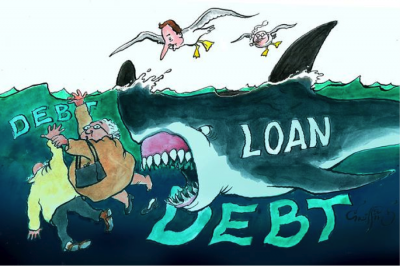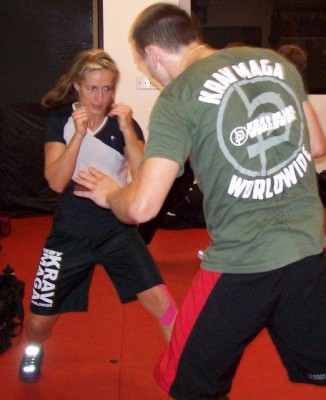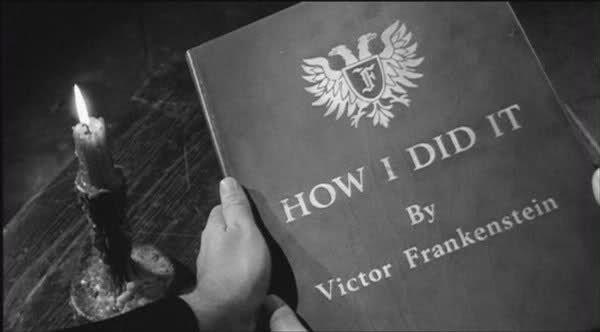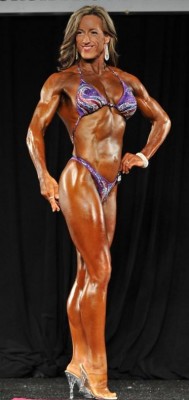If you spend enough time doing just about anything, you’re going to get a reputation for something associated with it. Some reputations you strive deliberately to obtain, and others, not so much.
Depending on which aspect of my life I look at, I can pretty much find I’ve managed to garner a “rep” in quite a few departments. In my professional career as a bodyworker, I’ve spent 18 years studying modalities out of the norm for most massage professionals. And not meaning to brag, I’ve gotten pretty darn good at it. As a result, I’ve gotten a “rep” for being able to give unique and powerful treatment unlike other therapists in my field. This is a “rep” I deliberately worked very hard to obtain, and I am quite proud to have earned. In my hobby as a gardener, I’ve added my love for cooking and gotten a “rep” for making the best, home-grown hot sauce and pesto to ever tickle a taste bud. This is a “rep” I didn’t expect, but also enjoy. It’s my other hobby as a bodybuilder where I have gotten my biggest shock on what I seem to have a “rep” regarding.
Sure, there are the usual observations from fellow gym rats that I “work out like a beast in the gym – totally focused.” Ok. Yeah. I like the iron. Most bodybuilders do. Then there’s the “she’s so ripped she could beat the crap out of me.” Why everyone automatically assumes just because you have muscle that you’re pre-disposed to violence, I really don’t understand (thanks a lot, Hollywood). These “reps” never seem to shock me, as anyone who lifts with stage time in mind is bound to hear this at some point.
This year, however, I’m realizing I have earned the rep for “She is always so lean year round! How does she do that?!” I’ve had fellow gym goers, competitors, and hell, even my own diet coach comment on this seemingly miraculous ability I have to hold a relatively lean physique 24/7/365. After I literally heard about the 20th person this year comment to me about how she wished she could do the same, I decided to take a good look at why and share my secret findings with you.
First off, know that I joined the sport of bodybuilding from a bodyworker’s perspective. What that means is, before I even lifted my first set to train to compete, I decided to turn myself into a lab rat and see exactly what the human body and mind could do when pushed to its limits, using myself as the main rat (or gym rat, so to speak). I wanted to study everything from how it felt when my body was under various training programs to the mental aspect of the game. In studying these, I would use the basic truths about the human body that I had learned in my 18 years of studying bodywork to guide me.
Keep in mind, I’m no super genius here. A lot of these epiphanies were hard earned. I made my mistakes. Point was, I never made a mistake without analyzing later exactly what went wrong and how I was going to fix it. Then I did my best not to make that same mistake again. This is what I’ve discovered in seven years of competing.
- Once a competitor ALWAYS A COMPETITOR – NO OFF SEASON.
I know this sounds harsh but you need to understand something critical about the human body. Changes do NOT happen quickly if you’re doing things right. If you’re an impatient person, you have chosen the absolute WORST sport in which to participate (unless of course you want a constant lesson in patience, then congratulations, you’re in the right place).
The first thing you need to realize when it comes to the body is that whatever you did to it to put it at a disadvantage, it will take you the same amount of time or quite possibly twice as long to reverse this. This is a basic truth in bodywork. When I have a client with an injury or dysfunction, if the person has had the issue for 4 weeks, with consistent treatment, it will take anywhere from 4-8 weeks to correct it. If you need a more relevant example, think about how you lift before and after a contest. In the 7-10 days prior to stage time, many competitors cut back lifting. After contest, when you return to the gym, do you start lifting again at your max weight? Most likely not. It usually takes a week or so to start feeling back to your old self. If your muscles behave this way, what makes you think your metabolism is any different?
The average competitor will diet anywhere from 8-24 weeks (translation 2-6 MONTHS – yes
MONTHS) in order to prepare for stage. Ok. Take a minute to wrap your brain around that… Got it? Ok. Now consider this: let’s assume you have a great diet coach, and you do everything right
up until you step on the stage. You look great! Maybe you even win. What happens afterwards? The average competitor assumes all bets are off, and they get to be “normal” again. Beer, chicken wings, pizza, cake, cookies… Hell, if there was a vat of peanut butter backstage after a contest, I guarantee it would rival the attendance of a public swimming pool on a 120 degree day. Here’s the problem. Get this through your head now.
STAGE READY IS NOT A NORMAL BODY.
Even a good competition diet puts the body at a disadvantage metabolically. It has to. Our goal is to strip away as much body fat as possible to show the muscle we’ve developed in order for it to be seen. In order to accomplish this, depending on your metabolic type, your coach has to cut carbs, fats, or protein in order to achieve this. So you spend anywhere from 6-8 weeks (maybe more if you have more body fat to lose) in the most aggressive part of a depletion phase.
Understand in that 6-8 weeks, the body gets used to metabolizing less and less of whatever is getting cut out of your diet. What is the first thing competitors do when the trophies are in hand? They eat everything they didn’t have for 6-8 weeks. Can the body deal with this? Well ask any competitor 48 hours after a competition how they feel. Bloated, sick, swollen, toxic, headaches, extreme weight gain… the list goes on. Besides just feeling like crap in general, persisting in the post-contest bingeing for several days after a contest, the body isn’t prepared to deal with the hyper load of macros you weren’t getting up to contest. As a result, the body of the competitor who continues to binge for days after contest starts to store this overage that it’s not used to metabolizing as fat.
Remember the basic truth in bodywork? If you put the body at a disadvantage for a period of time, it will take it the same amount if not twice that to correct it. Make no mistake. Pre-contest dieting puts the body at a disadvantage.
PARADIGM SHIFT: THE REAL CONTEST DIET IS NOT THE 6-24 WEEKS PRIOR TO THE COMPETITION. IT IS ALSO AN ADDITIONAL 6-24 WEEKS AFTER THE COMPETITION. FOR A GRAND TOTAL OF 12-48 WEEKS OF DIETING!
I wonder how many people would compete if they realized this. I believe it would be easier for most if they went in with this type of commitment to begin with. Many call this post-contest part “reverse dieting” – a term of which I’m not particularly a fan. It seems to imply there’s an end somewhere relatively soon. Personally, I prefer “active off-season,” as I never forget that everything I do plays a part for the next time I step on stage (even if that next time is a year away).
Post contest, a good diet coach will slowly re-introduce the carbs, fats, and proteins he took out of your diet to get you stage ready. During this slow re-integration, your body learns how to metabolize these macros again. You gain fat, but if you did it right, it’s not an ungodly amount. This is simply returning the body to a level of homeostasis. You need some fat back on your frame to allow your body to gain muscle again, but you don’t need to be 25 pounds over stage weight to do that.
- The Active Off-Season Macro Bank
No matter in what game people compete, if they’re serious at all about it, there is almost always a strategic element to the game. Chess players think several moves in advance. Football teams will sometimes deliberately lose yardage just to get better position on the field for the next play. Baseball teams decide the best line up of hitters for a desired result. Distance runners pace themselves through the race with some miles deliberately faster or slower than others. And the list goes on. Why should bodybuilding be any different? The only real difference is that we strategize over several months and not just the 2 or 3 hours it takes to play the game.
Macros are basically dietary money. Your coach gives you “x” amount of macros of protein, carbs, and fats each day. Once it’s spent, it’s spent, but you are supposed to spend ALL of these macros each day. They are the way you invest in your physique so you get the most return for your efforts. There comes a time, however, when we want more than what our macro bank allows. I like to look at this as buying on credit. What’s true about overspending money though is also true about overspending macros. Buy too much on credit, and the interest is going to come back and bite you in the ass.
That being said, I consider my active off-season macro diet a strategy for the next season. The key here is consistency. I do my best to hit my active off-season macros the best I can every day. I use whatever foods I want, but I only eat until all my daily macros are spent. BUT I’m human as much as the next person. Just as with any other sporting team, my plans may not always pan out, so I have to have a strategy for those times I miss spending or overspend my macros.
I do my best to stick to my macros, but if I want to have dinner out with friends or the occasional beer, I pull out my overage strategy. I will simply combine a couple of my meals (mine are broken into 6 per day) to cover the macros I can’t count accurately. I eat as smart as I can, but I do enjoy myself. When I get hungry again, I pick up with the meal closest to the next feeding time.
In the event I’m aware that I have indeed blown my macros pretty badly for a day (yes, it does happen), I consider this “buying on credit,” and the next day I will actually cut my macros slightly to make up for this. I consider this paying back the macro “loan” I took out as soon as possible before it begins to accrue interest in the form of fat, or worse yet, a roller coaster ride of blood sugar spiking that creates an addiction to craving junkie food options. The faster I get back to the right macro numbers and a more balanced diet, the happier I know I’ll be.
This is NOT a strategy I enlist on a daily basis. Remember, I try to hit my macros most of the time. I might do this once or  twice a week in the off-season but NEVER during the contest-diet phase. The key here is to be consistent with spending smart and not with overspending.
twice a week in the off-season but NEVER during the contest-diet phase. The key here is to be consistent with spending smart and not with overspending.
Another truth in bodywork is that consistency is key in order to progress. If a client wants to improve in flexibility or pain reduction, treating the body on a regular program is the best approach. Whatever you do consistently is the results you will reap. Stick to your macros consistently, and you’ll keep a tighter physique and can afford the random, brief “loan” on occasion. If you keep borrowing against the bank, before you know it, that bank will turn into a loan shark and your “interest” will accrue exponentially!
- The mental diffusion (plan for post-contest release)
Your body is equipped with a sympathetic nervous system and a parasympathetic nervous system. The parasympathetic nervous system deals with your body’s ability to relax and digest. That sounds nice, doesn’t it? Your sympathetic nervous system, on the other hand, processes “fight or flight” responses. It decides quickly how you will deal with a high-pressure situation or emergency.
With most sports, there’s a challenge which requires the body to react quickly. This stimulus triggers a flood of adrenaline and other electro-chemical releases in the body which enable the body to respond quickly and appropriately (fight or run away). Due to the sustained nature of activity in most sporting events, the body gets the opportunity to dissipate this chemical release that happens in the body that stimulates the fight or flight response. Not so in bodybuilding.
When we compete in bodybuilding, we build anticipation and excitement in particular for several days prior to stage time. Beginning the day before a contest, there is an increase in this anticipation as the competitor endures hourly scrutiny of the physique, tanning, registration, weigh-ins, etc. The day of the contest may present long wait times prior to getting on stage. Once on stage, the competitor must hold all this excitement in check as quarter turns and comparisons are assessed. Then everyone files calmly off stage, and, if you’re top 5, you have to hold composure until finals and possibly go for an overall. Then trophies are awarded. And then . . . (insert sound of crickets here) . . . .
I know that sounds cruel, but it’s true. What do we as bodybuilders have in order to release this chemical build up? Food & social media. That’s about it. The problem with this is neither of these help dissipate the chemical soup we’ve created in a sustained “fight or flight” state of being.
Another truth about the body is that a body in a constant sympathetic or fight or flight state will eventually begin to crumble. Anyone who has ever been under sustained stressful situations can testify to this. This can result in sickness, injury, or even WEIGHT GAIN! This weight gain is caused by a nasty little chemical in that soup you just stirred up called cortisol. If you don’t do something along the lines of “fight or flight” to help process this chemical, it will stimulate appetite and cause you to eat!
Once I figured this out, I realized I needed to arrange to do something thrilling IMMEDIATELY after a contest. Choosing an activity to engage in that stimulates adrenal release and keeps you active for a sustained time after a contest allows for this processing to occur.
I’ve engaged in Krav Maga fight classes, raced karts, flown kites, and yes, even allowed myself to be chased by zombies (not kidding about that – it’s an adventure race called “Run for Your Lives”) to help expel these excess chemicals, and I can tell you it works like a charm! Giving yourself a real thrill post contest helps your body diffuse the sympathetic state you created. Go bungee jump, climbing, ride roller coasters, sky dive, run with the bulls in Pamplona – just DO SOMETHING EXCITING!!! (And the gym doesn’t count because you’re used to that – pick something you’re not used to for maximum impact.) Once this chemical buildup is out of your system, it becomes much easier to stick to your macro diet, and you and your coach can begin a successful active off-season.
These days I will actually schedule two or three exciting activities over a period of a few weeks post contest to give me several opportunities to expel adrenaline and cortisol simply because I spent several days building a sympathetic state pre contest. Now granted, I’m pretty sure after the first thrill ride that I’ve expelled the chemical soup, however, remember what I said in the beginning? However long it took you to put the body at a disadvantage, it will take you up to twice as long to correct it. For me, personally, I have found this is also true with my sympathetic nervous system. The more exciting things I plan over time after a contest, the less problem I have with wacky cravings and macro overages.
When it comes to competing, I’d say a good portion of how to stay lean comes from knowing what you signed up for and committing to a long-term strategy. Sure you can blow off your diet right after a contest and deal with your bulk next season, but I can tell you that the older you get, or the more you gain (or both), the harder this is going to be. Add to that the fact that your success or failure to stick to your macros will indeed impact the way your body develops in the off-season. For me, going completely off the macro wagon just isn’t worth it. I don’t know about you but I want an ACTIVE off-season. I’m no saint. I can have my beer & cake, but I have to be my own parent. I know enough about the human body to know that I can’t cheat the basic truths of how it works. I believe we all have that little brat on our shoulder screaming to eat the entire package of cookies. Before you give her the whole package, ask yourself, “Am I a competitor?” How you answer that question will determine exactly how many cookies that little stinker is gonna get!




0 Comments